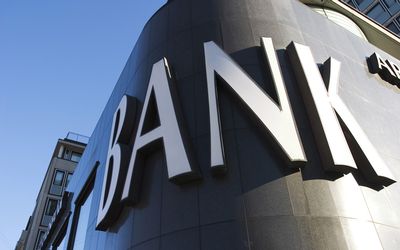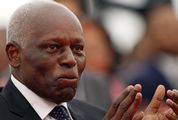ON THE MONEY: South African banks up for sale, but are international buyers interested?
SOUTH African banks are up for sale. But this selling phase will be very different to the last one that saw Absa and Standard Bank undertake transformative deals. In fact, this one may not go anywhere at all.
The last era saw all four of the big South African banks discuss deals. In 2005, SA was among the most desirable banking markets in the world. That year, a bidding war for Absa took place. Standard Chartered was pipped to the post by Barclays, which offered a lower price, but a neater deal to the Absa board.
The other domestic banks took note of the international interest. Standard Chartered went on to enter negotiations with FirstRand to acquire FNB, a discussion that faltered over price. Two years later, Standard Bank announced a deal with the Industrial and Commercial Bank of China that saw it buy a 20% stake. Old Mutual decided at about the same time to put Nedbank up for sale.
It was déjà vu for Standard Chartered, which pursued that deal aggressively, only to be edged out by HSBC. To add insult to injury, HSBC abandoned Nedbank at the last minute in 2010 — marking the end of the era.
Since then, deal making has been outward-focused, with Absa buying most of the rest of Barclays’s African network in 2013 and Nedbank buying 20% of West African group Ecobank in 2014.
Now, we are in a new era. Barclays has announced it wants to sell its 62% interest in Barclays Africa. Old Mutual is rumoured to be preparing to announce that it too wants to sell Nedbank, although the "for sale" sign has never really been taken down. In addition, the slowly resurrecting African Bank would be sensible to accept an offer should a buyer come along. But will this new era of bank sales be as successful as the 2005 phase?
Back then, the attraction for international banks was SA’s position as a strategic entry point into the rest of Africa. SA itself wasn’t too bad a market, but the growth prospects for the rest of Africa were more exciting. Prospects for the continent looked rosy, thanks to high commodity prices, a rapidly emerging middle class, and increasing political stability and improved governance. Africa was sporting very strong gross domestic product (GDP) growth forecasts.
What will the sales pitch be now? SA faces the worst economic prospects since 1994. In 2005, the country reported GDP growth of 5.3%. This year, it is unlikely to breach 1%. We are on the verge of a ratings downgrade that will make business for banks more difficult. A food price spike, higher interest rates and high unemployment dull prospects for a consumer market. Commodity prices are laying waste to growth prospects in the rest of Africa too.
So far, our banks have remained resilient. But the growth is being generated from declining bad debts. There is very little growth in the balance sheets of local banks — trifling new lending is taking place. And without any growth, international banks will struggle to see the case to buy.
The usual business case, that they can bring cheaper access to funding and improved products to targeted acquisitions, just can’t be made. The banks don’t need funding and consumers don’t need new products.
The other big change from 2005 is bank regulation. The additional capital requirements imposed on banks makes it much more expensive to hold large, risky assets. Regulators will be far more onerous in approach to deals than before.
So, while we now have two banks officially up for sale, the way this unfolds will be very different to 2005. There is not going to be a rush to the negotiating table. Barclays’s ambition is to whittle down its exposure, allowing it to deconsolidate its interest from its parent.
As I speculated last week, former Barclays CEO and architect of its previous Africa strategy, Bob Diamond, is trying to raise money to move on the Africa business, but will find it difficult. Smaller deals are more likely, such as block trades with institutional buyers.
While renewed energy will be put into finding a buyer for Nedbank, I can’t see the lack of interest of the past five years changing.
The most interesting sale prospect is African Bank, which is small enough, and in need of the strategic support that a new owner could bring it.
Overall, though, don’t expect international bankers to descend en masse.

Picture: THINKSTOCK
SOUTH African banks are up for sale. But this selling phase will be very different to the last one that saw Absa and Standard Bank undertake transformative deals. In fact, this one may not go anywhere at all.
The last era saw all four of the big South African banks discuss deals. In 2005, SA was among the most desirable banking markets in the world. That year, a bidding war for Absa took place. Standard Chartered was pipped to the post by Barclays, which offered a lower price, but a neater deal to the Absa board.
The other domestic banks took note of the international interest. Standard Chartered went on to enter negotiations with FirstRand to acquire FNB, a discussion that faltered over price. Two years later, Standard Bank announced a deal with the Industrial and Commercial Bank of China that saw it buy a 20% stake. Old Mutual decided at about the same time to put Nedbank up for sale.
It was déjà vu for Standard Chartered, which pursued that deal aggressively, only to be edged out by HSBC. To add insult to injury, HSBC abandoned Nedbank at the last minute in 2010 — marking the end of the era.
Since then, deal making has been outward-focused, with Absa buying most of the rest of Barclays’s African network in 2013 and Nedbank buying 20% of West African group Ecobank in 2014.
Now, we are in a new era. Barclays has announced it wants to sell its 62% interest in Barclays Africa. Old Mutual is rumoured to be preparing to announce that it too wants to sell Nedbank, although the "for sale" sign has never really been taken down. In addition, the slowly resurrecting African Bank would be sensible to accept an offer should a buyer come along. But will this new era of bank sales be as successful as the 2005 phase?
Back then, the attraction for international banks was SA’s position as a strategic entry point into the rest of Africa. SA itself wasn’t too bad a market, but the growth prospects for the rest of Africa were more exciting. Prospects for the continent looked rosy, thanks to high commodity prices, a rapidly emerging middle class, and increasing political stability and improved governance. Africa was sporting very strong gross domestic product (GDP) growth forecasts.
What will the sales pitch be now? SA faces the worst economic prospects since 1994. In 2005, the country reported GDP growth of 5.3%. This year, it is unlikely to breach 1%. We are on the verge of a ratings downgrade that will make business for banks more difficult. A food price spike, higher interest rates and high unemployment dull prospects for a consumer market. Commodity prices are laying waste to growth prospects in the rest of Africa too.
So far, our banks have remained resilient. But the growth is being generated from declining bad debts. There is very little growth in the balance sheets of local banks — trifling new lending is taking place. And without any growth, international banks will struggle to see the case to buy.
The usual business case, that they can bring cheaper access to funding and improved products to targeted acquisitions, just can’t be made. The banks don’t need funding and consumers don’t need new products.
The other big change from 2005 is bank regulation. The additional capital requirements imposed on banks makes it much more expensive to hold large, risky assets. Regulators will be far more onerous in approach to deals than before.
So, while we now have two banks officially up for sale, the way this unfolds will be very different to 2005. There is not going to be a rush to the negotiating table. Barclays’s ambition is to whittle down its exposure, allowing it to deconsolidate its interest from its parent.
As I speculated last week, former Barclays CEO and architect of its previous Africa strategy, Bob Diamond, is trying to raise money to move on the Africa business, but will find it difficult. Smaller deals are more likely, such as block trades with institutional buyers.
While renewed energy will be put into finding a buyer for Nedbank, I can’t see the lack of interest of the past five years changing.
The most interesting sale prospect is African Bank, which is small enough, and in need of the strategic support that a new owner could bring it.
Overall, though, don’t expect international bankers to descend en masse.




















Change: 0.40%
Change: 0.47%
Change: -0.49%
Change: 0.53%
Change: 1.03%
Data supplied by Profile Data
Change: 1.71%
Change: 1.28%
Change: 0.40%
Change: 0.00%
Change: 1.64%
Data supplied by Profile Data
Change: -1.27%
Change: 0.00%
Change: 0.05%
Change: -0.08%
Change: 0.35%
Data supplied by Profile Data
Change: -0.02%
Change: 0.21%
Change: -0.06%
Change: 0.53%
Change: 0.70%
Data supplied by Profile Data